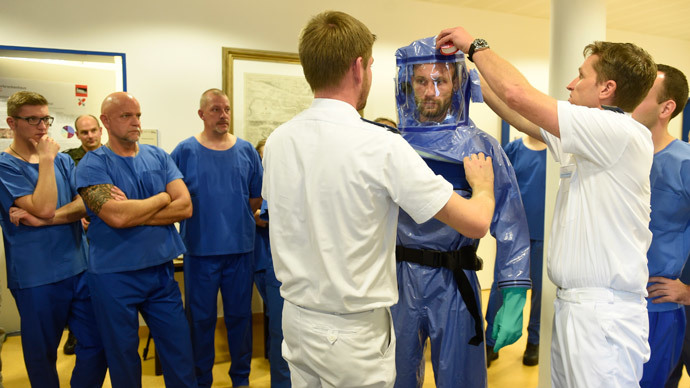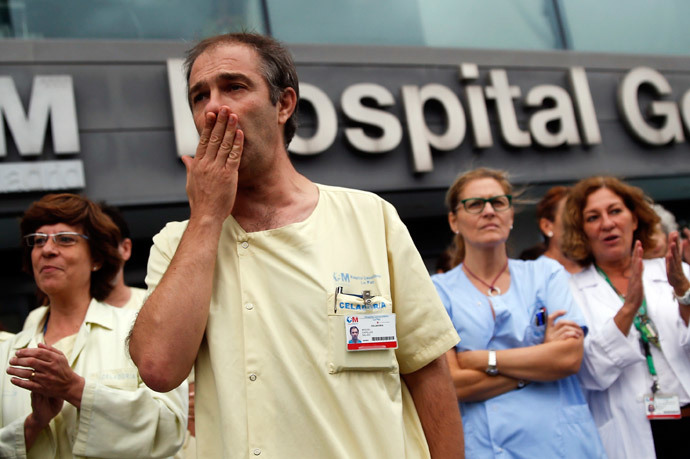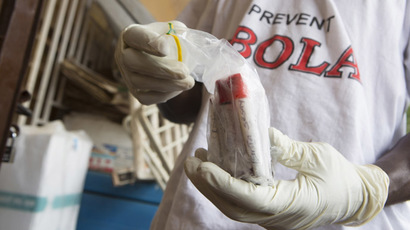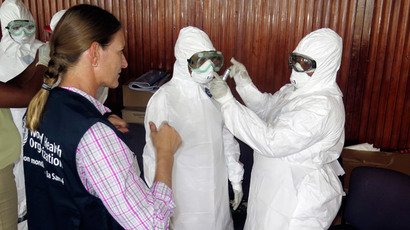Ebola spread 'unavoidable' in Europe due to extensive travel - WHO

The spread of Ebola in Europe is "unavoidable", the World Health Organization said shortly after the contraction of four new cases was announced in Spain.
“Such imported cases and similar events as have happened in Spain will happen also in the future, most likely,” the WHO European director Zsuzsanna Jakab told Reuters.
On Monday scientists predicted that there was a 75 percent chance that Ebola would reach France by the end October and a 50 percent chance for the UK.
READ: 75% chance Ebola will reach France by end October, 50% for UK – scientists
The most dangerous contributor to the spread is the behavior of the virus. Its symptoms catch people unawares and normally follow a 21-day incubation period, during which there’s literally no visible sign the person has contracted Ebola.
This is further complicated by the EU’s free movement system – one can literally infect anyone they come into contact with in the space of a few days if they were to drive or fly from one country to another.
“It is quite unavoidable ... that such incidents will happen in the future because of the extensive travel both from Europe to the affected countries and the other way around,” Jakab said.

WHO has so far placed no restrictions on flights to the worst-affected countries. While British Airways and Emirates are no longer flying there, Air France has only suspended flights to Sierra Leone – not Liberia, Guinea or Nigeria (though air crews were recently offered the option to refuse flying to those destinations).
Additionally, patients who have contacted the disease in West Africa have been repatriated for treatment – such as the two missionaries who died in Septamber in Spain – one of whom infected a 44-year-old Spanish nurse who was diagnosed on Monday.
READ: Spanish nurse tests positive for Ebola after treating victim in Madrid
Health officials in Madrid said on Tuesday that three more people are in hospital on suspicion of contracting Ebola after the diagnosis of the nurse.
The nurse is now being treated with a drip using antibodies from those previously infected with the virus. Approximately 22 people who have been in contact with the woman, dubbed by media the "Spanish Ebola nurse," have been identified and are being monitored, Madrid health officials told reporters Tuesday.
However, WHO has stated that the continent is well prepared to control the disease.
“It will happen," she said. "But the most important thing in our view is that Europe is still at low risk and that the western part of the European region particularly is the best prepared in the world to respond to viral haemorrhagic fevers including Ebola,” Jakab said.
EBOLA SPREAD: RT'S INTERACTIVE MAP
.














